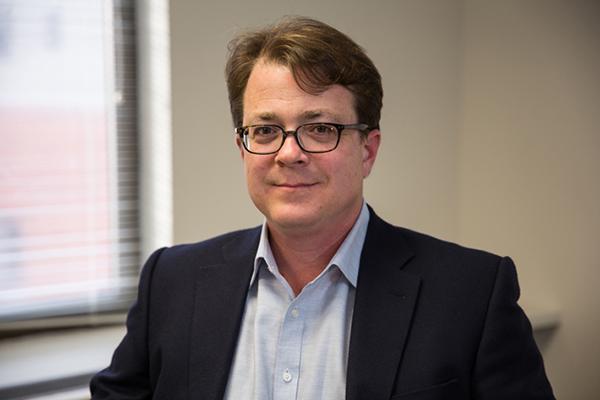A research institute that has been in the works for nearly six years will officially find a home on campus April 1.
Officials announced the long-awaited autism institute’s inaugural director last week, along with a plan to focus on autism research in adults and women – an area that faculty said is not well-researched currently. The University will use $5 million out of its own pocket to fund the institute.
In the past, officials said that they would need $10 million to launch the institute but declined to say if that total had been reached.
The Autism and Neurodevelopmental Disorders Institute was created in 2010 and will be housed in existing space on the Virginia Science and Technology Campus and in Ross Hall on the Foggy Bottom Campus. The institute will work with the Children’s National Medical Center and with more than 80 faculty from five colleges.
Kevin Pelphrey, the new director, said he plans to meet with faculty to develop a “shared vision for the institute.” Pelphrey will bring $20 million and seven active research grants to the University.
Pelphrey was the founding director of Yale University’s Center for Translational Developmental Neuroscience, where he built one of the first adult-focused autism research programs in the country and also established a program devoted to studying girls with autism spectrum disorders.
Pelphrey said he will start his time at GW by preparing the clinical and research space for the institute and meeting with collaborators on campus and in the community. He said he and other leaders at the institute chose to focus on autism research in adults because “there is such a large gap in our understanding of ASD in this population.”
Leo Chalupa, the vice president for research, said in an email that Pelphrey will invigorate the institute and provide “key leadership” to implement their goals.
“Dr. Pelphrey’s research focus on adults with autism dovetailed perfectly with GW’s vision to create an institute that focused on underserved populations and gaps in our current knowledge,” Chalupa said.
Two years after the institute’s creation, the Office for the Vice President of Research hired Heather Russell, their first development director, to raise funds for its projects.
Pelphrey will soon be tasked with hiring five new faculty members and administrative staff, according to a press release.
Chalupa said that the first phase of financial support for the institute will rely on funding from donations, commitments from institutional partners like the Children’s National Medical Center and investments from the University.
Nelson Carbonell, the chair of the Board of Trustees, and his wife donated $2.5 million to fund the director’s position. Their son was diagnosed with autism at a young age.
Carbonell said Pelphrey is an “amazing person” and he has high hopes for him and the institute. Carbonell added that the institute will help coordinate and combine resources of the dozens of faculty members who are already researching autism and neurodevelopmental disorders.
“Our family is really happy to have him here,” Carbonell said. “We have to do everything we can to support him and the efforts of all our faculty.”
Anthony LeMantia, the director of GW’s neuroscience institute, said there will be extensive interaction between the neuroscience and autism institutes over the coming years. He said leaders have also discussed creating a “more campus-wide institute of autism.”
LeMantia said that most of the faculty he has hired work on autism-related research, and there are about 10 faculty members in his institute whose research is directly related to autism.
He added that Pelphrey stood out as the strongest candidate because of his accomplishments and proven leadership capabilities. He said that Pelphrey put together a “remarkable lab” at Yale University and he hopes that the same will happen here.
“He brings a perspective of both dealing with human patients with autism and their behavioral needs for care with the biology of what’s going on in these individuals,” LeMantia said.
Lauren Kenworthy, the director of the Children’s National Center for Autism Spectrum Disorders, said focusing on females and adults is important because they are “two heavily imputed but understudied demographics in autism.”
She said that Pelphrey brings many accomplishments to GW and she looks forward to collaborating with him.
“He is a well-established neuro-imager who has made major contributions to our understanding of how social cues are processed in autism,” Kenworthy said.
Danielle Mahar and Jacqueline Thomsen contributed reporting.








